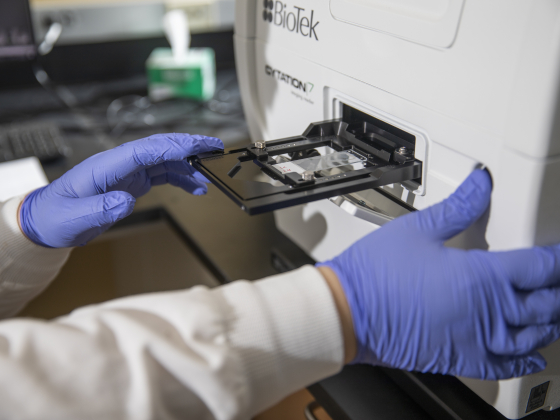UK’s fertile scientific environment, outstanding faculty, and collaborative spirit are key drivers of CPRI’s success. The individual core leaders work directly and collaboratively with UK investigators on study design, implementation, and prioritization to accomplish specific project outcomes. Ongoing projects are reviewed/prioritized on a monthly basis by the CPRI core leadership team to facilitate advancement.
Since its inception in 2012, CPRI has engaged in 83 distinct collaborative projects representing 7 UK Colleges, 6 external academic institutions (including two in Kentucky – EKU and NKU), 5 companies, 2 non-profits, and 1 government agency. During this same time frame, CPRI has contributed to 126 peer-reviewed publications, 14 issued patents, and new extramural grants to UK totaling $49.4M in direct costs ($68.3M total costs). CPRI key resource utilization across all projects to date is well-distributed (Computational Core, 19%; Synthesis Core, 30%; Translational Core 29%; Natural Products Repository, 21%) where most projects make use of more than one key resource.

